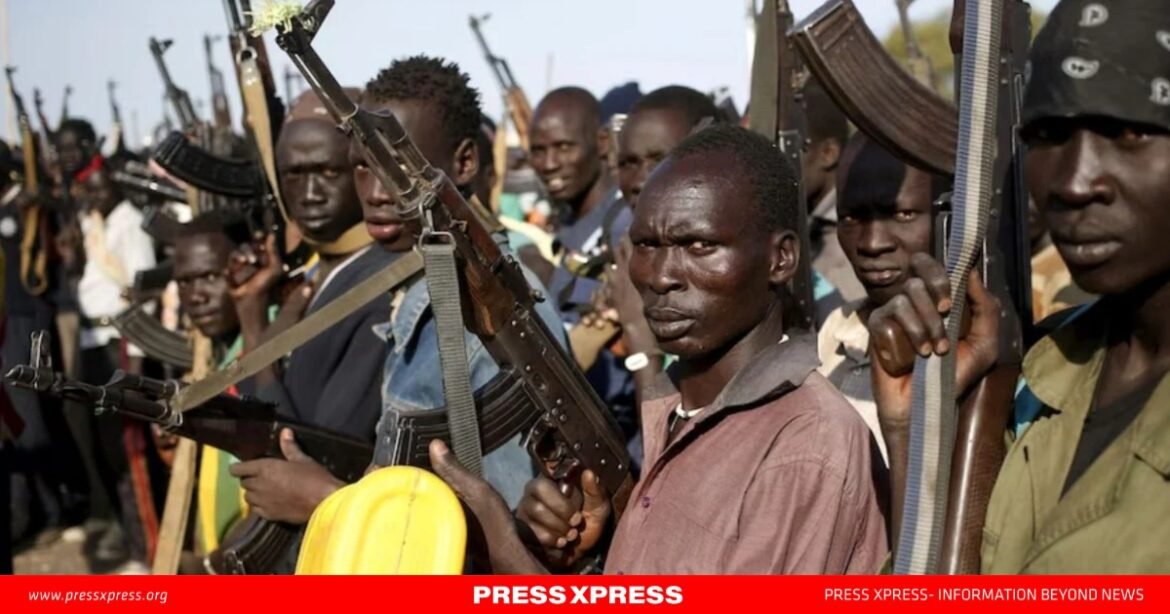If the division solidifies, the country risks becoming a collection of warring fiefdoms, with both sides relying on fragmented coalitions and external backers
The Sudanese crisis, marked by intense conflict between the Sudanese army and the paramilitary Rapid Support Forces (RSF), threatens to devolve into a complete state collapse. The ongoing battle is not only reshaping Sudan’s internal dynamics but also attracting significant foreign intervention, with Iran, Turkey, and Egypt playing pivotal roles. The potential for a divided Sudan is not just a domestic catastrophe but also a geopolitical challenge with far-reaching implications.
Evolving Towards a De Facto Partition
Nearly two years of relentless fighting have fractured Sudan along regional lines. The RSF, entrenched in Darfur—a region almost the size of France—has created a stronghold, leveraging its tribal roots and paramilitary origins. The army, meanwhile, has gained ground in central and eastern parts of the country, reclaiming strategic locations such as Wad Madani. These developments highlight the possibility of a de facto partition, with Darfur operating under RSF control while the rest of Sudan remains under the army.
This bifurcation could deepen local conflicts and exacerbate Sudan’s humanitarian crisis. Tens of thousands have already perished, millions have been displaced, and millions more face starvation. If the division solidifies, the country risks becoming a collection of warring fiefdoms, with both sides relying on fragmented coalitions and external backers.
The Role of Darfur in Sudan’s Fragmentation
Darfur’s importance extends beyond its geographical size and resource wealth. Its borders with Chad, South Sudan, and Libya make it a critical geopolitical asset. Control over Darfur offers strategic advantages for smuggling routes, resource extraction, and cross-border influence. The RSF, born from the Janjaweed militias that wreaked havoc during the Darfur War, has deep-rooted support in the region. However, its influence wanes beyond Darfur, limiting its ability to mobilize loyal recruits nationwide.
The army’s strategy has focused on reclaiming urban centers like Khartoum and Wad Madani, consolidating its legitimacy as Sudan’s sovereign authority. However, this approach risks abandoning local armed groups such as the Sudan Liberation Movement (SLM-MM) and the Justice and Equality Movement (JEM), whose support is crucial for any long-term stability in Darfur.
Foreign Influence: Iran, Turkey, and Egypt
Sudan’s internal conflict has drawn foreign powers into its orbit, with Iran, Turkey, and Egypt emerging as key players. Each of these nations has distinct motivations and strategies:
Iran: Historically interested in Sudan for its geostrategic position and potential as a foothold in the Red Sea, Iran’s involvement underscores its broader regional ambitions. By supporting the Sudanese army, Tehran seeks to counterbalance Gulf Arab states and expand its influence in Africa.
Turkey: Ankara’s involvement aligns with its neo-Ottoman aspirations, combining economic investments and military support to enhance its influence in the region. Turkey’s logistical and material support has bolstered the Sudanese army’s capacity, marking a significant shift from its prior vulnerabilities.
Egypt: Cairo views Sudan’s stability as integral to its national security, particularly concerning the Nile River’s water resources. Egypt has intensified its support for the army, aiming to reestablish Khartoum’s dominance and prevent further regional instability. While Egypt may reluctantly accept a partitioned Sudan, it strongly favors a centralized state under military control.
The Risks of Fragmentation and Regional Implications
A divided Sudan would not only worsen domestic chaos but also destabilize the broader region. Armed groups and militias—empowered by external support—could engage in fierce infighting, as seen in clashes between the Salamat and Beni Halba tribes. Such conflicts risk creating ungoverned spaces that could become breeding grounds for extremism and transnational crime.
Moreover, the RSF’s control of Darfur and its borders with Chad, South Sudan, and Libya would have far-reaching implications for regional security. Smuggling networks, human trafficking, and arms flows could intensify, undermining fragile neighboring states.
A Grim Outlook for Resolution
The entrenched positions of the army and RSF, combined with their reliance on external support, complicate prospects for a peaceful resolution. The possibility of a fractured Sudan makes any peace deal more elusive, as rival coalitions vie for power and resources. Analysts warn that even if the RSF retreats to Darfur, the region’s resistance movements, such as the SLM-MM and JEM, could continue to challenge its authority.
Further complicating matters, both the army and RSF have outsourced fighting to allied militias, creating a volatile environment where local groups may turn against their patrons. This decentralization of violence risks perpetuating conflict even if a ceasefire is achieved at the national level.
Conclusion
The Sudan crisis stands at a crossroads, with the specter of state collapse looming large. A divided Sudan would have catastrophic consequences, not only for its people but also for the stability of the entire region. The involvement of Iran, Turkey, and Egypt underscores the geopolitical stakes at play, as these nations seek to shape the conflict’s outcome to their advantage.
However, foreign intervention has also prolonged the war, enabling both the army and RSF to sustain their campaigns. For Sudan to avoid disintegration, a concerted international effort must address the root causes of the conflict and foster a comprehensive peace process. Without such intervention, Sudan risks becoming a cautionary tale of how internal strife and external meddling can destroy a nation.


